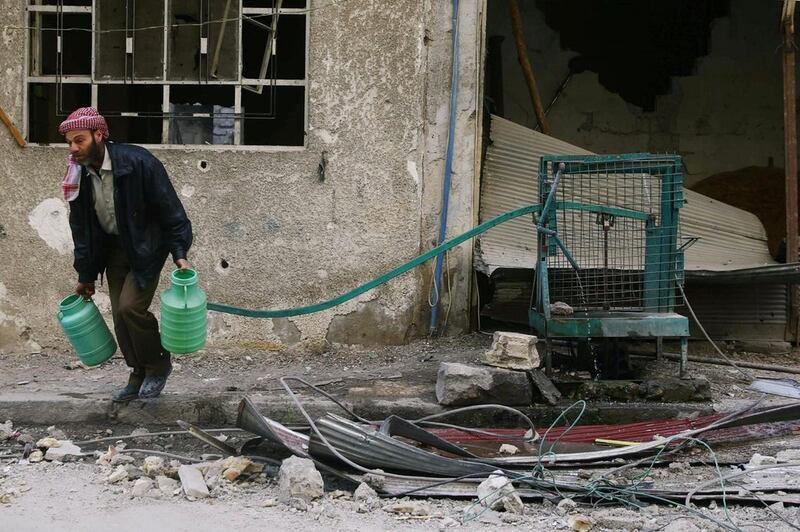Minutes after the UN Security Council voted unanimously on Saturday for a 30-day ceasefire across Syria to allow medical evacuations and humanitarian deliveries, regime warplanes dropped bombs on Eastern Ghouta. As a British diplomat said, while the world was "arguing over commas", Bashar Al Assad, Syria's president, was reloading his jets with missiles to deliver death to those resisting his rule. The following day, his forces launched a renewed ground and air assault against the inhabitants of Eastern Ghouta. At least 14 civilians were killed in Sunday's offensive, bringing the total number of deaths since the regime intensified its bombardment of the rebel-held enclave outside Damascus to 520. Among the dead are 130 children, the most recent of their number a three-year-old, killed in a suspected chemical attack in the village of Al Shifuniyah.
There is no let-up in the regime's attacks and no respite for the people trapped in what has been described by UN Secretary General Antonio Guterres as "hell on earth". What is happening in Eastern Ghouta and Afrin, which is being bombed by Turkey, is not an aberration but rather the continuation of a deadly pattern. As The National reports, the war in Syria has progressed from bad to worse under the shadow of UN debates and resolutions. Some 20 resolutions have gone to the floor at the UN since the Syrian civil war erupted in 2011; but the world's resolve to stop the blood of Syrians from being shed repeatedly collapsed against the obstinate determination of Mr Al Assad's chief international sponsor, Russia, which, together with China, wielded its veto powers to squash resolutions that might have resulted in some relief for Syrians. Even resolutions that did pass unanimously were immediately violated on the ground. In 2016, for instance, a major resolution imposing ceasefire in eastern Aleppo collapsed on the very day that it passed.
More than 340,000 people have lost their lives as Russia has progressively chiselled away at the UN's capacity to contain the conflict through diplomatic means. Saturday's security council resolution calling for a month-long ceasefire is already looking like a perfunctory measure – progress on paper, but meaningless in reality. Mr Guterres has to report back to the security council in 15 days' time on the resolution's implementation, but the fact that Russia has threatened not to "countenance any subjective interpretation of the resolution" means that he cannot state the blindingly obvious: that Russia's diplomatic and military support for Mr Al Assad is among the principal obstacles in the path to enforcing resolutions designed to achieve peace. The talking shop has disbanded after producing yet another resolution at the UN. History tells us that it will do little to halt the bombing spectacle in Syria.





